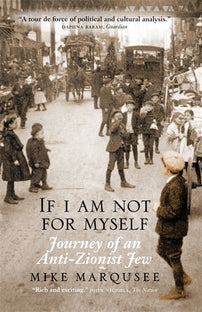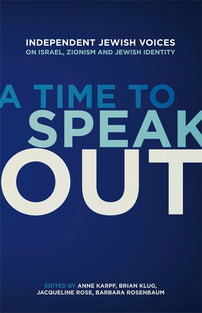Stereotypes Should Be Discussed, Not Sanctioned
Over the course of the ‘Labour antisemitism’ controversy that has raged over the past few years, the party’s readiness to sanction or expel members who have expressed ‘anti-Jewish’ stereotypes has become the litmus test of its commitment to combating antisemitism. But, what are stereotypes, and are all stereotypes instances of animus towards the group in question?

Over the course of the ‘Labour antisemitism’ controversy that has raged over the past few years, the party’s readiness to sanction or expel members who have expressed ‘anti-Jewish’ stereotypes has become the litmus test of its commitment to combating antisemitism.
Pundits and political actors have lined up to demand ever harsher and swifter sanctions against members ‘guilty’ of having at some point in their lives uttered one or more negative stereotypes about Jews. Groups trawl private Facebook pages and twitter feeds for incriminating statements, reaching years into the past. Targets find themselves exposed in the press and hauled before party tribunals to account and atone for their deviant thoughts. Senior Labour figures now demand automatic expulsions for members found guilty of antisemitism. Former Prime Minister Gordon Brown declares that Labour must not fail to take action against ‘even . . . a single case of abuse’. Jewish groups demand, and Labour leader Jeremy Corbyn pledges, ‘zero tolerance’ for antisemitism.
When Labour’s General Secretary equivocates from this line, and notes that it is ‘impossible’ to entirely eradicate antisemitism from a mass movement, she is furiously condemned. Every last antisemite and trace of antisemitism in the party must be ‘stamped out’, ‘root[ed] out’, ‘kick[ed] out’, ‘eradicated’ and ‘expelled’.
Amid this persecutory hysteria, elementary truths have been forgotten—truths that pertain not merely to the cases in hand, but to the nature of stereotypes in general.
First, stereotypes are not individual aberrations or eccentric deviations. Rather, they reflect prejudices and associations that are deeply embedded in our culture, tradition and history.
Second, and as a result of this, no-one is immune from stereotypes—be they antisemitic, racist, xenophobic, sexist, homophobic, or ableist. We all harbour them because we are all products, however uneven, of society.
Third, harbouring a positive stereotype need not indicate love of the group in question, while harbouring a negative stereotype need not indicate animus toward the group in question. If I believe that Chinese people are good at maths, or that Jews are smart, it does not mean I love the Chinese or the Jews. By the same token, if I believe that Jews are cheap, it does not mean I necessarily harbour hatred toward them. Negative stereotypes about Jews are then not in and of themselves examples of antisemitism.
This last, critical point is recognised in—of all places—the IHRA Working Definition of Antisemitism, which the Labour Party was steamrollered into adopting in 2018. The IHRA produced a list of ‘illustrative’ examples of antisemitism. But it pointedly did not present these examples as self-evidently or inherently antisemitic. On the contrary, the IHRA stated that such stereotypes ‘could’ constitute antisemitism, ‘taking into account the overall context’.
In other words: for a negative stereotype about Jews to be judged as manifesting hatred of Jews—certainly if this judgement is to be ‘irrefutable'—additional evidence of antisemitic motivation is required.
The IHRA defined antisemitism as a ‘perception . . . which may be expressed as hatred toward Jews’. If this definition is applied to survey data on antisemitism, it becomes clear that the IHRA was right to distinguish between holding stereotypes about Jews and harbouring hatred toward them.
For example, a poll conducted by the Institute for Jewish Policy Research (JPR) found that fully 30 percent of UK adults harboured this or that stereotype about Jews. However, if we use the IHRA’s definition (‘hatred toward Jews’) then at most 2.4 percent of UK adults are antisemitic.
That is to say, fewer than one in twelve people who harbour an ‘anti-Jewish’ stereotype can be plausibly described as antisemites.[1]
The overwhelming majority of those who harbour an ‘anti-Jewish’ stereotype do not feel hatred toward Jews.[2]
This distinction between stereotypes and hatred is common-sensical. Does every man who believes that women are bad drivers hate women? Plainly not. Yet by the standards now being bandied about, every Labour member who harbours this stereotype about women would have to be ejected from the party.
In this way, the ‘Labour antisemitism’ controversy has unmoored us from a reasonable, everyday perspective on how to deal with these issues. To illustrate,[3] consider one of the IHRA’s examples:
Making mendacious, dehumanizing, demonizing, or stereotypical allegations about Jews as such or the power of Jews as collective — such as, especially but not exclusively, the myth about a world Jewish conspiracy or of Jews controlling the media, economy, government or other societal institutions.
A 2018 YouGov survey commissioned by Hope Not Hate found 13 percent of the UK population in agreement that ‘Jewish people have an unhealthy control over the world’s banking system’ — a belief encompassed by the IHRA example above. Given that at most 2 percent of Labour voters harbour hatred toward Jews, and assuming the figure above is the same for Labour voters as for the population as a whole, fewer than one in six Labour voters who harbour a belief in disproportionate or unhealthy Jewish control over world finance also feel hatred toward Jews.[4]
A Campaign Against Antisemitism survey found that 11 percent of Labour voters (as against 15 percent of Conservative voters) agreed that ‘[c]ompared to other groups, Jewish people have too much power in the media’ — another statement covered by the IHRA example above. Again, given that a maximum of 2 percent of Labour voters harbour hatred toward Jews, it follows that fewer than one in five Labour voters who harbour a belief in disproportionate Jewish power in the media will also feel hatred toward Jews.
Consider, in this respect, a 1993 survey interrogating Israeli Jews about Diaspora Jews and antisemitism. The survey found significant proportions of Israeli Jews in agreement that '[t]he Jews have a lot of economic power (money) and political influence in their country of residence' (72 percent), '[i]n general, Jews are more talented and successful than non-Jews' (69 percent), 'Jews are noisy and impolite' (34 percent), 'Jews are conceited, keep to themselves, and are disrespectful toward non-Jews' (29 percent), 'Jews cannot be trusted (dishonest, cunning)' (14 percent).[5]
The JPR’s finding that one-third of UK adults agreed with at least one ‘anti-Jewish’ stereotype was adduced by media commentators as evidence that the UK was awash with antisemitism. By this logic, the antisemitism crisis in 1990s Israel was much more serious. It also bears notice that, to judge by the findings of that 1993 survey, most Israeli Jews would be expelled from the Labour Party for antisemitism.
Two conclusions follow from this discussion.
1) Antisemitism exposed in the Labour Party is even lower than disciplinary figures suggest
Since September 2015, approximately 0.06 percent of Labour Party members have been ‘taken through the stages of our disciplinary procedures’ over alleged antisemitism.
This figure does not represent cases that arose ‘organically’ but is the product of organised and protracted efforts to flood Labour’s disciplinary system with complaints.
From this already minuscule fraction must be subtracted false allegations; people who, at the time the complaint against them was filed, no longer believed the stereotype(s) they once shared; and people who never did believe it/them.
This leaves party members who, at the time a complaint was filed against them, still believed the ‘antisemitic’ stereotype(s) they had previously expressed. But as this discussion shows, the vast majority of people who harbour at least one ‘antisemitic’ stereotype do not feel hatred toward Jews. The chances are therefore high that most party members who expressed one or more such stereotypes did not do so on the basis of anti-Jewish animus.
The proportion of Labour Party members who harbour hatred toward Jews so far brought to light rapidly approaches zero.
2) The censorial approach to Labour antisemitism is wholly misplaced
As Nadine Strossen, long-time former president of the American Civil Liberties Union, observes: ‘speech that reflects discriminatory stereotypes can often result from ignorance or insensitivity rather than malevolence’.[6] It is certainly plausible that this statement applies to the vast majority of those who believe one or more stereotypes about Jews, particularly in the case of left-wingers, Labour voters and Labour Party members.
The correct approach to such stereotypes remains that put forward by one of the giants of the left-liberal tradition, John Stuart Mill, in his classic work On Liberty: full, frequent and fearless discussion. Free and unfettered exchange holds out the possibility that those who hold negative stereotypes can be persuaded out of them; those who do not hold such stereotypes can consider, refine and practice articulating their own views in light of them; and everyone can gain a truer understanding of the people around them.
As Strossen also writes, among the most effective means to reduce group prejudice is direct contact. This is one of the salutary functions of a mass party: to erode and overcome inter-group suspicions, misapprehensions and antipathies, which everyone in the real world harbours, by bringing together people from all walks of life in common struggle for shared objectives.
In a futile effort to appease bad-faith opponents, Labour has betrayed the libertarian socialist tradition that represents the best of its intellectual and political heritage. From ‘the Truth is revolutionary’ (Gramsci) and ‘Freedom is always and exclusively freedom for the one who thinks differently’ (Luxemburg), the Labour bureaucracy is degenerating into a machine for thought-control.
Labour’s critics maintain that anything other than a harsh punitive and censorial approach to ‘anti-Jewish’ stereotypes is evidence that the party is prioritising public relations over anti-racism. Precisely the reverse is true. Surveilling, investigating and sanctioning members for deviant expressions may make for good press (although all evidence suggests otherwise), but it does nothing to reduce antisemitism.
Jamie Stern-Weiner is a PhD candidate at the University of Oxford and the editor of Moment of Truth: Tackling the Israel-Palestine Conflict’s Toughest Questions (OR Books, 2018)
Alan Maddison is a Strategic Analyst and associate member of Jewish Voice for Labour.
[book-strip index="1" style="display"][1] The true disparity is likely to be greater. First, the 2.4 percent figure is an upper bound. Second, ‘hatred’ denotes a stronger passion than severe negativity, which is what the 2.4 percent figure captures. Third, whereas the 2.4 percent figure is comprehensive, the 30 percent figure is an artifact of the choice and number of ‘antisemitic’ statements polled by the JPR. Had the JPR tested 15, 25, or 50 ‘anti-Jewish’ statements, its figure for the ‘maximal diffusion’ of ‘antisemitic’ ideas would doubtless have been higher.
[2] This majority is even greater in the case of leftists, Labour voters and Labour Party members.
[3] To be precise, there are two distinct points at issue. The first: Does a particular statement necessarily constitute mere hatred toward a group, or is it a factual assertion that might be true? The second: To what extent is a particular statement a reliable proxy for hatred?
[4] It also bears notice that individuals among the 41 percent of respondents who ‘didn’t know’ whether Jews have an unhealthy control over world banking might well share material to this effect on social media, in most cases without harbouring hatred toward Jews.
[5] Shlomit Levy, Israeli Perceptions of Antisemitism (Jerusalem: Vidal Sassoon International Center for the Study of Antisemitism, 1996).
[6] Nadine Strossen, HATE: Why We Should Resist It with Free Speech, Not Censorship (Oxford: Oxford University Press, 2018), p. 8.




